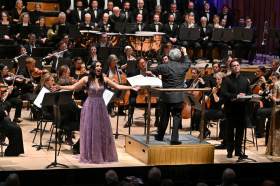The last two decades have seen the UK undergo a visible transformation as the nation moves into a post-industrial era. Take Gateshead Quays, for example – now home to the award-winning Millennium Bridge, The Sage Gateshead and BALTIC Centre for Contemporary Art – or Manchester’s glittering new ‘museum of the modern city’, Urbis.
But when it comes to regeneration, it’s not just about buildings. Projects are underway targeting rural regeneration, social inclusion, nurturing the creative talents of young people and enhancing the cultural life of people in cities through festivals and other events. The whole term regeneration has an enormous spectrum of implications associated with it – and for the first ‘Creative Clusters’ conference, director Simon Evans seems to have most facets covered.
The four-day conference, beginning today, aims to address the new challenges that have arisen for creative industries as a result of regeneration projects. Interestingly, the event highlights a number of ‘firsts’. Evans has drawn together a comprehensive programme for the first annual ‘Creative Clusters’ conference – entirely over the internet and via email – the first time to his knowledge this has been done without any printed promotional material.
Further, the event will be held in Sheffield’s Cultural Industries Quarter (CIQ) – a zone in the city which was designated as an area for regeneration using cultural industries in the early 1980s.
‘It was the first place, anywhere – as far as we know – where there wasn’t much cultural activity and it was explicitly designated as a business zone for cultural related businesses,’ Evans explains.
Following a successful career producing festival shows from Edinburgh to Amsterdam, to Hong Kong and back to London, where he established the London International Festival of Theatre (LIFT) in 1981, Evans literally stumbled across his new calling. He moved into an office space in a disused garage in Sheffield in the early 80s, which unbeknownst to him, had been designated as the centrepiece for the CIQ. Subsequently, Evans embarked on policy work for Government organisations, and discovered a gap in the market for a conference when he noticed a proliferation of job vacancies for officers to overlook regeneration policies.
The result is a comprehensive line-up of speakers from around the UK and as far afield as Australia, South Africa, Russia, Bulgaria, Austria and Holland. Evans recognises there are a number of different industries that play a role in regeneration, and the challenge is to enhance relationships between them to achieve the highest level of successful regeneration.
‘In order to get the best out of creative industry regeneration you need to draw together entrepreneurial expertise, but on its own that’s not good enough,’ he emphasises. ‘There also needs to be cultural regeneration, but on its own, that isn’t good enough either. Thirdly, there is community regeneration and a sense of specificity and place about the projects developed. But again, on its own, it won’t work’
‘For the creative industry agenda to work properly none of these must dominate, all must be prepared to compromise in the direction of the other.’
The challenge for the conference, Evans continues, is to draw the elements together without one set of values dominating.
The seminars and case studies cover the vast range of issues facing regeneration, including: creative entrepreneurship; creative and economic inclusion; cultural industries in small towns and rural areas; and opening up creativity for young people.
Meanwhile, ‘The Creative Region’ seminar aims to discuss the work of the UK’s 10 Regional Development Agencies and what this means for regional distinctiveness. The concept of Cultural Quarters will be illustrated by an address from Wolfgang Waldner, Director of Museums Quartier Vienna; and Liesbeth Jansen, director of Westergasfabriek in Amsterdam, a former gas factory currently being converted into a cultural park.
A series of speakers from the Johannesburg Development Agency will discuss the transformation of the post-Apartheid city, while ‘Creative Cities’ presents case studies from Wollongong, an industrial coastal port in New South Wales, Australia, attempting to emerge as a cultural hub following the decline in the steelworks industry; and Brighton and Newcastle-Gateshead in the UK.
New research surrounding London’s creative and cultural economy and Northern Ireland’s creative industries will also be presented.
Evans points out while there is no one specific ‘successful’ model around the world, the idea of the conference is to broaden people’s range and sensitivities to the nuances of different places.
‘The local specificity of each place means project’s have to be adapted properly to their location,’ he explains. ‘Something that worked in Amsterdam is not going to work in its entirety in Wollongong. That’s not to say they can’t learn from each other, because seeing things through the prism of another culture can be very enlightening.’
But Evans also adds – after prompting from a quote by an arts festival director, that regeneration has largely funded buildings rather than people – is that there needs to be further integration of both physical and social regeneration.
‘I think there has been an over-emphasis on buildings and there still is to some extent,’ he concedes. ‘Not only buildings, but physical infrastructure like traffic systems and transport hubs. These things are tremendously important, but need to be driven by different policies.’
‘The point of buildings is the activity going on inside them, and the point of cities is the people living within them. My opinion is social issues need to be considered at the same time as physical regeneration.’
The ‘Creative Clusters Summit Conference’, is taking place November 20-23, Sheffield, UK. For further information visit the Creative Clusters website



